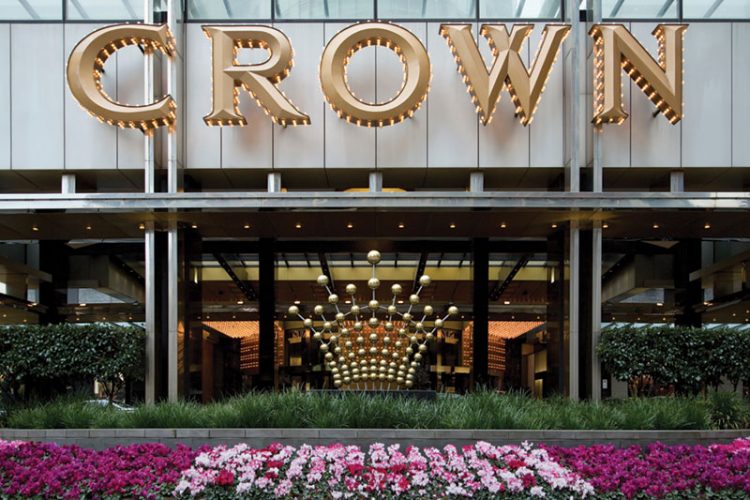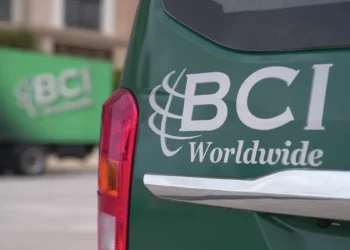Already deemed unsuitable to hold a casino license in New South Wales, there are still many chapters to be written in the Crown Resorts story with two more Royal Commissions and a comprehensive internal makeover now underway.
More than 14 months since New South Wales launched an inquiry into the conduct of Australian casino giant Crown Resorts, and almost three months after the final report by commissioner Patricia Bergin was handed down, Crown’s future remains as uncertain as ever.
 The findings of the Bergin Report have by now been well documented. With the NSW inquiry uncovering substantial gaps in the company’s anti-money laundering controls, evidence that Crown bank accounts had been infiltrated by organized crime syndicates in Asia, and the presence of undue influence on Crown’s Board of Directors by majority shareholder James Packer, Crown Resorts was found unsuitable to hold a casino license in NSW and prevented from opening its AU$2.2 billion Crown Sydney casino in December as originally planned.
The findings of the Bergin Report have by now been well documented. With the NSW inquiry uncovering substantial gaps in the company’s anti-money laundering controls, evidence that Crown bank accounts had been infiltrated by organized crime syndicates in Asia, and the presence of undue influence on Crown’s Board of Directors by majority shareholder James Packer, Crown Resorts was found unsuitable to hold a casino license in NSW and prevented from opening its AU$2.2 billion Crown Sydney casino in December as originally planned.
The Bergin Report also listed several steps Crown might take to convert to suitability, highlighting the fact that “many of the problems that rendered the licensee and Crown as unsuitable stem from poor corporate governance, deficient risk management structures and processes and a poor corporate culture.”
Recommendations put forward to the state’s regulatory body – the NSW Independent Liquor and Gaming Authority (ILGA) – included a restructuring of the Crown board, forensic auditing of all Crown bank accounts, new rules around relationships with major shareholders (particularly Packer’s Consolidated Press Holdings) and the implementation of better protections concerning AML and relationships with Asian junket operators.
 In consultation with the ILGA, many of those steps are now well underway. Most notable has been the departure of five former Crown directors singled out by Bergin – Guy Jalland, Michael Johnston, Andrew Demetriou, Harold Mitchell and John Poynton – plus CEO Ken Barton and General Counsel Mary Manos. Their absence has left the Crown Resorts Board with just four active members at time of writing, including Helen Coonan, who has assumed the role of Executive Chairman while the company looks for a new CEO to replace Barton.
In consultation with the ILGA, many of those steps are now well underway. Most notable has been the departure of five former Crown directors singled out by Bergin – Guy Jalland, Michael Johnston, Andrew Demetriou, Harold Mitchell and John Poynton – plus CEO Ken Barton and General Counsel Mary Manos. Their absence has left the Crown Resorts Board with just four active members at time of writing, including Helen Coonan, who has assumed the role of Executive Chairman while the company looks for a new CEO to replace Barton.
ILGA chair Philip Crawford, tasked with assessing Crown’s efforts to convert to suitability in NSW, tells IAG he is in regular contact with Coonan – at least weekly by phone and fortnightly in person – and that the tone of discussions in recent months has been encouraging.
“Helen Coonan has been very responsive to us and to the findings of Bergin,” Crawford says. “She gets it. It’s a very serious matter, so this is really about crisis management.
“Without that response and perceiving the need for change, Crown would never get to being suitable in my view, but from day one she has been very open and frank about how bad things were and her shock and disappointment at matters uncovered in the inquiry. She has also understood that it needs to happen pretty quickly.
“One of the big requirements was that a lot of people had to go to change the culture of the place, because a lot of it is leadership from the top, and that process has just about been completed. Now it’s getting better structures in place to cope with the compliance obligations and put up defenses against infiltration from organized crime. It’s very important to get those in place.
“It’s ironic and almost unbelievable that a company that has traded in other jurisdictions for almost 30 years did not have adequate measures in place. This is not a start-up we’re dealing with.
“Crown hasn’t started as an operator in NSW yet and we’re very pleased we got onto it before they came here, but it is very disappointing and embarrassing for the company itself that it was found wanting in so many ways. Our inquiry only went back six or seven years and there was enough behavior there for a lifetime.”
Working in Crown’s favor in NSW is the fact that the operational failures uncovered by the Bergin Inquiry relate almost entirely to the company’s operations in Victoria and Western Australia. In fact, when the NSW inquiry was initially called in August 2019, it was less about concerns over Crown’s internal AML controls and more in response to the sale by Packer’s Consolidated Press Holdings (CPH) of a 19.99% stake in Crown to Macau casino operator Melco Resorts & Entertainment.

The allegation was that any involvement of Melco and its Chairman and CEO, Lawrence Ho, breached Crown’s NSW gaming license – signed in 2014 – which specifically stipulated that neither Stanley Ho nor any Stanley Ho associate was permitted to hold a direct interest in Crown.
Stanley Ho, the man credited with building Macau’s vast casino industry, is also Lawrence Ho’s father, and until his passing last year aged 98 he held a beneficial interest in Melco Resorts parent, Melco International Development Ltd.
In the end, none of that mattered: Melco backed out of the Crown deal before the inquiry even began and Bergin subsequently found that the agreements entered into by CPH and Melco had not constituted a breach of Crown’s NSW gaming license anyway.
Assuming Crown can convert to suitability, that presents an opportunity to open its Sydney casino with a clean slate and there is no doubt the ILGA is amenable to such a scenario.
Asked if its goal was to help Crown reach suitability, Crawford told IAG, “We don’t have a goal but I certainly want to act in good faith in complying with our obligations under these agreements that were entered into with the government. Balancing that with our obvious obligations as a regulator, I wouldn’t have embarked on this process in anything other than good faith to determine whether we could get them to a point where we would be comfortable and find them suitable.
“To the extent where I saw any conduct or behavior which worried me, then obviously that would be a matter for concern, but I haven’t seen that. I have seen a board under Helen Coonan driving very hard to come to terms with the concerns of Bergin and the major recommendations under Bergin, so at the moment, on face value, they are doing what they should be doing.”
While the ILGA is still awaiting the results of an audit of all Crown bank accounts by Deloitte Australia – aimed at “making sure other accounts haven’t been infiltrated by organized crime and that there are no irregularities with their handling of money” – the regulator did grant interim liquor licenses for Crown Sydney’s non-gaming facilities, which opened on 28 December. Crawford also intimated that those interim licenses would likely be extended beyond their current 30 April expiration date.
Yet, for all its progress in NSW, the bigger concern for Crown appears to be in Victoria and Western Australia – home to Crown Melbourne and Crown Perth respectively – where both state governments have responded to the Bergin Report by launching Royal Commissions of their own.
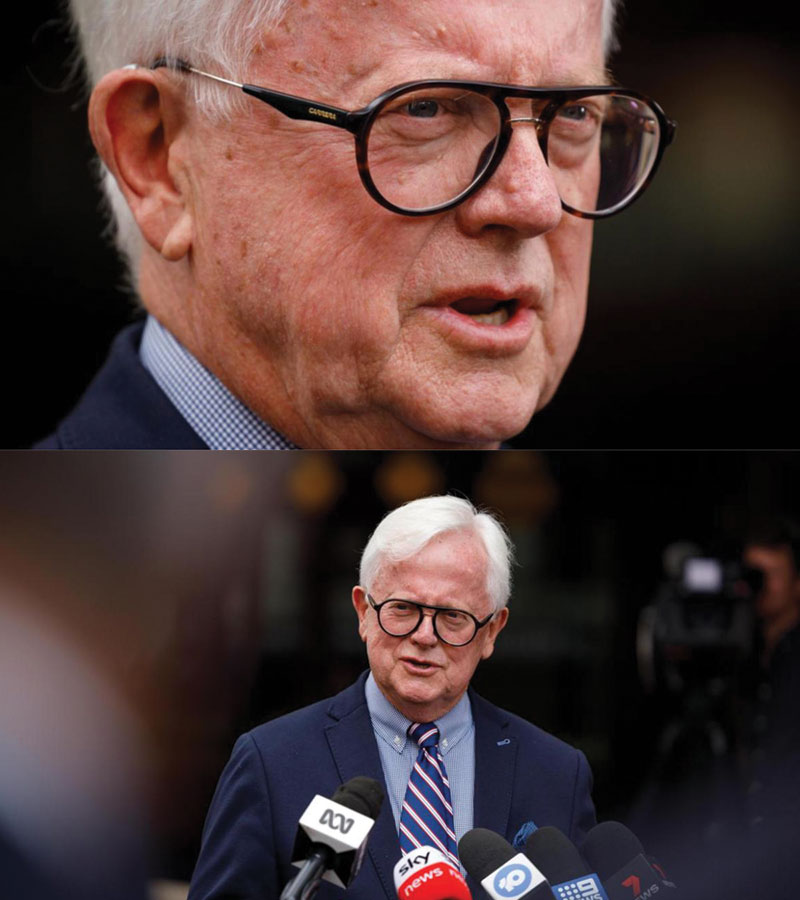 The obvious questions are: what do authorities in these states expect to find that NSW hasn’t already uncovered, and what remedial action could Crown take that it hasn’t already initiated?
The obvious questions are: what do authorities in these states expect to find that NSW hasn’t already uncovered, and what remedial action could Crown take that it hasn’t already initiated?
Time will tell on both fronts, however there is reason enough for Crown to at least feel somewhat uneasy about proceedings in Victoria where, unlike in Western Australia, the Terms of Reference for the Royal Commission state that the commissioner is not to rely on the results of the Bergin or other inquiries in conducting his investigations.
“That opens up a field of endeavour for the commissioner to justify spending AU$10 million on an inquiry,” says David Green, a former gaming regulator in South Australia and long-time advisor to the Singapore and Macau governments.
“My view is that they will likely drill hard into things that were largely left alone by Bergin.”
Green anticipates one of the first ports of call will be Robert Rankin, the former Crown chairman who was on the board when 19 Crown employees were arrested in mainland China – 16 of them later jailed – in October 2016. Rankin, now based overseas, refused to appear at the NSW inquiry but can be compelled to do so under the powers of Victoria’s Royal Commission and could face jail time of his own should he duck and weave again.
Also in the potential firing line is Coonan, who Green notes is married to former NSW Supreme Court judge Andrew Rogers. Bergin, a NSW Supreme Court judge herself from 1999 to 2017, would count Rogers as a mentor and succeeded him as Chief Judge in Equity from March 2009.
“The Commission in Sydney really gave [Coonan] a pretty easy ride and I can speculate why that was,” Green says. “These people knew each other and I never saw a disclosure about that by Bergin. Certainly she didn’t preclude herself from listening to the evidence from Coonan.
“These things matter, and in Victoria where you’ve got a Commissioner who will see himself as being instructed to dig up new dirt, there is potential for a lot more intense questioning of the fact that Coonan has been on the Crown board for the past nine years. There is real potential for stuff to come out in Victoria that likely won’t get any airing in Western Australia where they are allowed to rely on the findings of Bergin and will start on the premise that most of what was covered by Bergin is on the record and incorporated into proceedings.”
For its part, Crown has already taken multiple steps to address the findings of the Bergin Report.

In October last year, the company terminated two agreements with CPH in response to concerns around Packer’s influence on the board. One was a 2018 Controlling Shareholder Protocol that had seen Packer, but not other shareholders, provided daily updates on the company’s performance, financial forecasts and detailed information on revenue from the VIP business. The other was a 2016 Services Agreement which allowed Crown to request the services of key CPH executives at pre-agreed hourly rates.
Notably, the first two directors to fall on their swords following release of the Bergin Report in February were Jalland and Johnston – both CPH executives who had been serving as Packer’s representatives on the Crown board.
Termination of the CPH agreements was followed a month later by the news that Crown would permanently cease all activity with junket operators at its casinos in Victoria, New South Wales and Western Australia, with any future partnerships subject to local licensing approval.
In December, Crown announced the appointment of former National Australia Bank Chief Financial Crime Risk Officer and Group Money Laundering Reporting Officer Steven Blackburn as its new Chief Compliance and Financial Crimes Officer. Starting in the role on 1 March 2021, Blackburn has been tasked with cleaning up the company’s substantial AML shortfalls.
So what now for Crown?
Paul Newson, a former NSW regulator and currently head of the Regulatory Advisory Practice of law firm Senet, suggests much of the heavy lifting has already been done and that the launch of Royal Commissions in two states is at least in part due to Crown failing to tell a persuasive story around its reform journey.
“In my conversations with the then CEO (Barton), and listening to their AGM (in October 2020), it was apparent that Crown had initiated not insignificant reform and that they had substantial measures underway,” Newson says.
 “I think both through caution, perhaps legal advice and some timidity they decided not to really put that into the public domain in an impactful way. They certainly didn’t tell a persuasive story about it and I think they were timid about offending or being seen to be interfering with the inquiry.
“I think both through caution, perhaps legal advice and some timidity they decided not to really put that into the public domain in an impactful way. They certainly didn’t tell a persuasive story about it and I think they were timid about offending or being seen to be interfering with the inquiry.
“My view is they missed an opportunity to tell people that they were on a reform journey and were energetic about it.”
Royal Commissions or not, the immediate priority for Crown will be repopulating its board with directors more qualified than those who got them to this point in the first place
First cab off the rank is Nigel Morrison, a veteran of the gaming industry with stints as CFO of Crown Melbourne from 1993 to 2000, Group CFO of Macau’s Galaxy Entertainment Group and most recently CEO of New Zealand’s SkyCity Entertainment Group. Morrison was announced by Crown in January as a new non-executive director pending regulatory approval and comes highly regarded within the industry, but at this stage stands as a solitary piece in the jigsaw puzzle.
“They need systems in place and they need senior management doing a good job on what they are meant to be doing as a buffer to potential attacks by organized crime. That’s a big issue for us,” offers Crawford when asked what he would like a new Crown Resorts Board of Directors to look like.
“It’s really at two levels – one is operating casinos and the other is simply as a listed company with obligations under the Corporations Act. They got most of that wrong so fixing those things up to our satisfaction is very important.
“I would hope to see people with some degree of experience in casinos, plus numerate people with board experience, a good understanding of the Corporations Act and their obligations as directors. I think they need well rounded people with specific experience around the concerns that we have and in running businesses that are casinos.”
According to Green, however, board improvements are only part of the solution.
“The problem is deeper than that,” he says, pointing to the fact that, even without his previous shareholder agreements in place, Packer still owns 36% of the company.
“As long as Packer is sitting there with 36%, the way in which the company addresses gaming risk is always going to be paying regard to his interests. I think that might be one of the fundamental issues as to why suitability might be an issue for them – can they demonstrate they are truly separate from Packer?”
Crawford says he can’t offer any specific commentary around the Packer issue but adds, “You can assume we are in discussions with CPH about their shareholding and how best to address concerns around influence. We certainly have a discussion going on right now.”
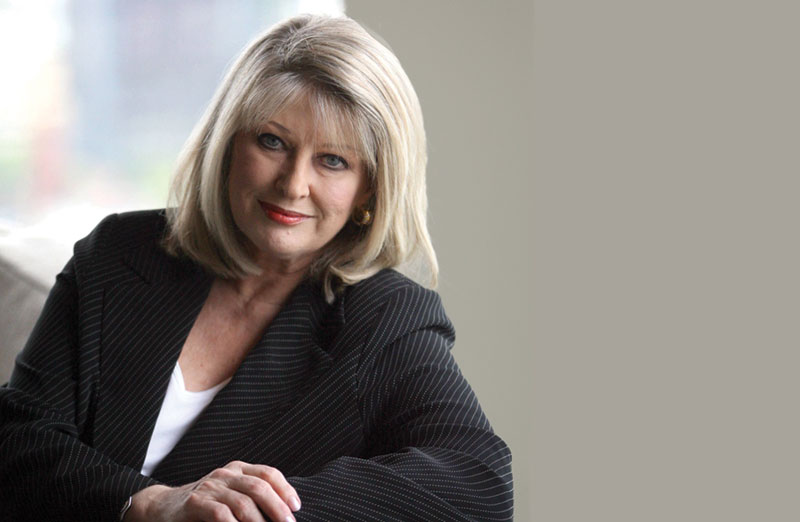
The question of whether or not Packer plans to sell down could be a moot one given recent talk of a potential buyout. On 21 March, Crown received an unsolicited AU$8 billion (US$6.1 billion) offer from American private equity giant The Blackstone Group – which currently holds a 9.99% stake in Crown it acquired from Melco last year. Blackstone is seeking to acquire all shares in Crown. Depending upon who you ask, that offer of AU$11.85 per share is either extremely generous given Crown’s share price at the time of offer of AU$9.91 per share, or extremely low based on a 30-month high of AU$14.20 and the long-term potential of the company. Crown’s share price immediately jumped from around AU$10 to around AU$12 on news of the potential Blackstone deal – a deal which is far from done given the laundry list of attached conditions including Blackstone’s own suitability to own Crown.
Notably though, Packer has since stated he won’t stand in the way should Crown vote yes to the sale – potentially providing him another way out after his original deal with Melco fell through.
That opportunity may be even more attractive given comments by Commissioner Ray Finkelstein on the first day of proceedings at Victoria’s Royal Commission. While Finkelstein said it was not in the public interest to go over ground already covered by Bergin in NSW, primarily due to lack of time, he promised to take a closer look at money laundering at Crown Melbourne, whether it was still taking place and whether past indiscretions constituted a material breach of its casino license. He also promised to take a detour into how Crown deals with issues around problem gambling. Given concerns that the Royal Commission is politically motivated – it took authorities north of the border to uncover indiscretions taking place in Melbourne – Crown executives may be facing more sleepless nights ahead.
If Crown is sold to Blackstone, it has been suggested that the company’s local rival, Star Entertainment Group – operator of The Star Sydney, The Star Gold Coast and Brisbane’s Treasury Casino – could be appointed to manage gaming operations at Crown Sydney.
 Such an arrangement, state JP Morgan analysts Don Carducci and Abhinay Jeggannagari, would mirror those adopted in Las Vegas where Blackstone has spent almost US$9 billion in the last two years to acquire Bellagio, MGM Grand and Mandalay Bay.
Such an arrangement, state JP Morgan analysts Don Carducci and Abhinay Jeggannagari, would mirror those adopted in Las Vegas where Blackstone has spent almost US$9 billion in the last two years to acquire Bellagio, MGM Grand and Mandalay Bay.
“Blackstone owns the properties and receives rent payments from the operators (MGM),” they write in a research note. “Blackstone could look to apply a similar strategy with Crown where it splits the company into a property company, which holds premium hotels/tourism assets, and a company that runs the casino (subject to approvals/probity/finding a suitable owner).
“If Blackstone is unable/willing to operate the casino, Star could make probity easier as the OpCo for an owner whilst extracting fees and avoiding Sydney competition.”
Could Crown lose its licenses altogether? That extreme seems unlikely, according to Green – even if he remains unconvinced of the company’s efforts to clean up its act.
“The question now becomes: are they capable of actually rectifying the many defects and shortcomings that will have been identified by the end of these Royal Commissions?”
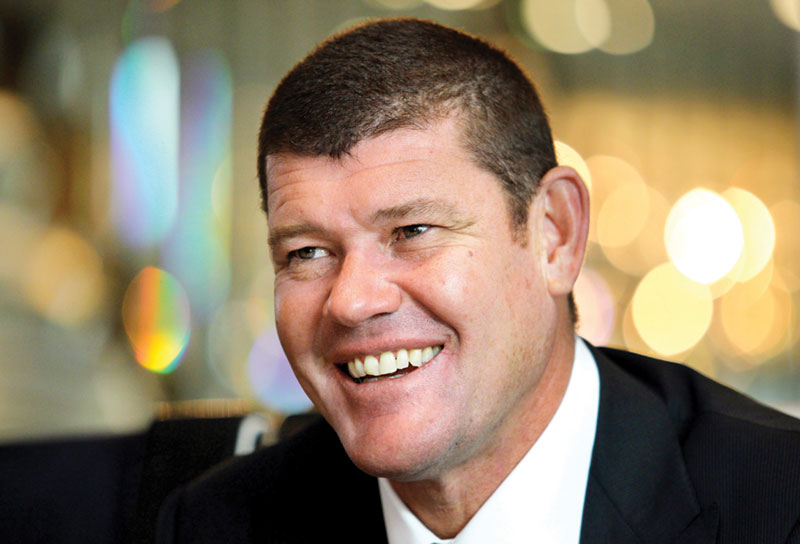
Green continues, “I can see one argument that the deficiencies are so ingrained and so deep that it really isn’t possible unless there is a complete change of everyone [including Coonan]. The problem then is who will join the board and what sort of processes is the regulator going to apply to ensure suitability, given the suggestion it might have applied a light touch in the past? And who wants to go through that? So I think there is a possibility that the findings might be so material that Crown can’t satisfy suitability, which raises the risk of losing their license. But the government is so wedded to those revenue streams that it would be a big call to tell Crown they were out and give the license to someone else.
“Ultimately, what’s done is done and even if it can be proved there was money laundering they’ll probably get a massive fine and move on. I think that’s the only way you can deal with it.”






